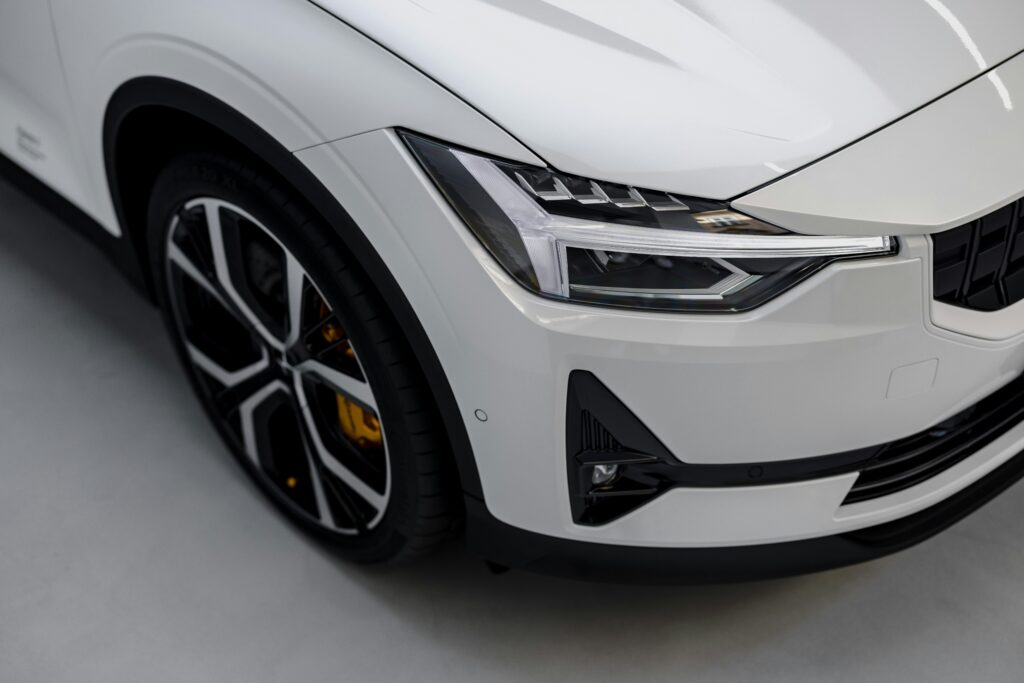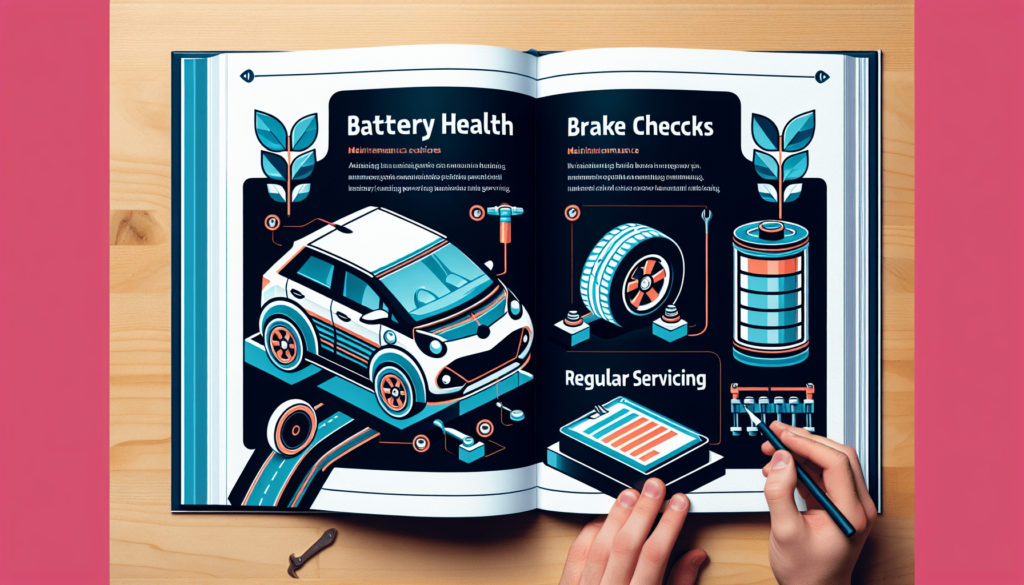What Maintenance Do Electric Vehicles Require?
Share

So, you’ve recently joined the electric vehicle (EV) club, and you’re eager to hit the road with the smooth, quiet ride that comes with it. But hold on, before you zoom off, you may be wondering, what kind of maintenance do these futuristic vehicles require? Well, fear not, as we break down the essentials for you. From battery care to tire rotations, and even brake inspections, we’ll explore the ins and outs of EV maintenance that’ll keep you driving with confidence and peace of mind.
Regular Inspection and Maintenance
Regular inspection and maintenance are crucial for the proper functioning and longevity of your electric vehicle (EV). By following a regular maintenance schedule, you can ensure that your EV performs at its best and minimize the risk of any potential issues. Here are some key areas to focus on during your regular inspection and maintenance routine.
Battery health check
The battery is the heart of your electric vehicle, and it’s essential to keep it in good health. Regularly checking the battery’s health can help you identify any issues early on. Most EVs have a built-in battery health monitoring system that provides you with information about the battery’s capacity and overall condition. Keep an eye on the battery’s state of charge, and if you notice any significant decline in capacity, it might be time to schedule a battery capacity check.
Brake system inspection
Just like any other vehicle, the brake system in your EV plays a crucial role in ensuring your safety on the road. Regularly inspecting the brake pads and rotors can help you identify any signs of wear or damage. If you notice any unusual noises, vibrations, or reduced braking performance, it’s essential to have your brake system inspected by a professional as soon as possible.
Tire inspection
Properly maintained tires are essential for the overall performance and efficiency of your EV. Regularly inspect the tire tread depth, as worn-out tires can affect your EV’s handling and braking ability. It’s also important to check for any signs of damage or uneven tire wear. If you notice any issues, consider having your tires rotated or replaced to ensure optimal performance and safety.
Suspension system inspection
The suspension system in your EV helps provide a smooth and comfortable ride. Regularly inspecting the shock absorbers, linkages, and bushings can help identify any signs of wear or damage. It’s also important to lubricate the suspension components as specified by the manufacturer to maintain their optimal performance. By keeping your suspension system in good condition, you can enhance your EV’s overall ride quality and handling.
Fluid level check
While electric vehicles don’t have an engine that requires oil, they still have various fluids that need to be monitored and maintained. Regularly checking the coolant level in your EV ensures that the battery and other components are properly cooled. Additionally, regularly refilling the windshield washer fluid ensures clear visibility while driving.
Battery Maintenance
The battery is undoubtedly one of the most critical components of your electric vehicle. Proper battery maintenance can help prolong its lifespan and maintain its efficiency. Here are some key aspects to consider for battery maintenance.
Charging habits
Proper charging habits are vital for the long-term health of your EV’s battery. It’s crucial to follow the manufacturer’s recommendations for charging, including using the recommended charging equipment and avoiding frequent fast charging unless necessary. The battery’s management system in your EV plays a significant role in monitoring and controlling the charging process, but you can also help maintain battery health by avoiding extreme temperature conditions and balancing the battery’s charge regularly.
Battery cooling system maintenance
Some electric vehicles have a dedicated cooling system for the battery to ensure optimum operating temperature. It’s important to regularly inspect and maintain this cooling system. Ensure that the cooling system is free from any debris or obstructions that may hinder its performance. Adequate and efficient battery cooling helps maintain battery health and prolong its lifespan.
Battery capacity check
Over time, the capacity of your EV’s battery may gradually decrease. Regularly checking the battery’s capacity can help you assess its overall health. If you notice a significant decline in capacity, it might be an indication that the battery needs to be replaced or serviced. Consult with a professional technician or contact the manufacturer to determine the best course of action.
Battery software updates
Just like any other software, the battery management system in your EV may require periodic updates. These updates help optimize battery performance and address any potential issues or vulnerabilities. It’s essential to stay up to date with the latest software updates provided by the manufacturer. Regularly checking for software updates and installing them can help ensure that your battery performs at its best.
Brake System Maintenance
The brake system is an integral part of your EV’s safety and should be properly maintained. Here are some key aspects to consider for brake system maintenance.
Pad and rotor inspection
Regularly inspecting the brake pads and rotors is essential to ensure optimal braking performance. Check for any signs of excessive wear, damage, or uneven wear patterns. If the brake pads are worn close to their minimum thickness, it’s crucial to have them replaced. Additionally, if you notice any unusual noises or vibrations while braking, it’s important to have your brake system inspected by a professional technician.
Brake fluid check
The brake fluid plays a vital role in transferring the brake force from the pedal to the brake system. Regularly check the brake fluid level and ensure it is within the recommended range. If the brake fluid appears dark or contaminated, it may be necessary to have it flushed and replaced. Consult the vehicle’s owner’s manual or a professional technician for the recommended maintenance interval and specifications for the brake fluid.
Brake system flush
Over time, brake fluid can absorb moisture, which can lead to reduced braking performance and potential corrosion within the brake system. A brake system flush involves removing the old brake fluid and replacing it with fresh fluid. This maintenance procedure helps ensure proper braking performance and extends the lifespan of the brake system components. Consult with a professional technician for the recommended brake system flush interval.
Tire Maintenance
Properly maintained tires are crucial for the overall performance, efficiency, and safety of your EV. Here are some key aspects to consider for tire maintenance.
Tire pressure check
Regularly checking tire pressure is important for maintaining optimal tire performance and extending their lifespan. Underinflated tires can increase rolling resistance and reduce efficiency, while overinflated tires can negatively impact ride comfort and handling. Refer to the vehicle’s owner’s manual or the tire manufacturer’s recommendations for the optimal tire pressure. Use a tire pressure gauge to check the pressure regularly and adjust as needed.
Tire rotation
Tire rotation helps ensure even wear across all tires and extends their lifespan. The front and rear tires undergo different loads and wear patterns due to differences in weight distribution and driving conditions. Regularly rotating the tires according to the manufacturer’s recommendations helps promote even wear and ensures balanced performance. Consult the vehicle’s owner’s manual or a professional technician for the recommended tire rotation interval and pattern.
Wheel alignment
Proper wheel alignment is crucial for maintaining optimal handling, tire wear, and overall safety. Misaligned wheels can lead to uneven tire wear, reduced fuel efficiency, and poor vehicle stability. It’s essential to have the wheel alignment checked regularly and adjusted if necessary. Signs of misalignment include uneven tire wear, the vehicle pulling to one side, or a steering wheel that is off-center. Consult with a professional technician to perform a wheel alignment and ensure that your EV’s tires are aligned correctly.
Tire replacement
Eventually, your EV’s tires will reach a point where they need to be replaced. Excessive wear, damage, or reaching the minimum tread depth are indicators that it’s time for new tires. Regularly inspect your tires for signs of wear, such as tread depth below the recommended limit, sidewall damage, or bulges. When replacing tires, it’s important to choose the right size and type of tire recommended by the vehicle manufacturer.

Suspension System Maintenance
The suspension system of your EV helps provide a comfortable and controlled ride. Here are some key aspects to consider for suspension system maintenance.
Shock absorber inspection
The shock absorbers play a crucial role in maintaining vehicle stability and overall ride comfort. Regularly inspecting the shock absorbers for signs of leaks, damage, or excessive wear is essential. If you notice any fluid leaks, reduced damping performance, or uneven tire wear, it’s important to have your shock absorbers inspected and potentially replaced by a professional technician.
Linkage and bushing inspection
The linkages and bushings in the suspension system help connect various components and provide flexibility and control. Regularly inspecting these linkages and bushings for signs of wear, damage, or misalignment is important. If you notice any looseness, squeaks, or abnormal handling characteristics, it’s crucial to have the suspension system inspected by a professional technician.
Suspension component lubrication
Proper lubrication of suspension components is essential for maintaining their performance and reducing wear. Follow the manufacturer’s recommendations for lubrication points and intervals. Use the recommended lubricants or greases to ensure proper lubrication. Regularly lubricating the suspension components can help prevent corrosion, reduce friction, and ensure optimal performance and longevity.
Fluid Maintenance
While electric vehicles do not have an internal combustion engine, they still require maintenance of certain fluids. Here are some key aspects to consider for fluid maintenance in your EV.
Coolant check
The coolant in your electric vehicle is responsible for cooling the battery and other components. Regularly checking the coolant level and condition is important to ensure proper cooling and prevent overheating. If the coolant level is low or if you notice any signs of contamination or degradation, it’s crucial to have the coolant system inspected and topped up or flushed as recommended by the manufacturer.
Windshield washer fluid refill
Maintaining clear visibility while driving is crucial for your safety. Regularly checking and refilling the windshield washer fluid helps ensure that you can clean the windshield effectively. It’s important to use the recommended type of windshield washer fluid to prevent damage to the system. Refill the washer fluid reservoir as needed, especially before long trips or during periods of heavy road grime or inclement weather.

HVAC System Maintenance
The HVAC (Heating, Ventilation, and Air Conditioning) system in your EV is responsible for providing comfort and maintaining optimal cabin temperatures. Here are some key aspects to consider for HVAC system maintenance.
Cabin air filter replacement
Regularly replacing the cabin air filter helps ensure clean and fresh air inside the cabin. Over time, the cabin air filter can become clogged with dirt, dust, and other contaminants, reducing its effectiveness. Refer to the vehicle’s owner’s manual or consult with a professional technician to determine the recommended cabin air filter replacement interval and procedure.
Air conditioning system check
Proper functioning of the air conditioning system is crucial for maintaining a comfortable cabin temperature. Regularly check the air conditioning system for any signs of reduced cooling performance or unusual noises. If you notice any issues, it’s important to have the air conditioning system inspected and serviced by a professional technician.
Drive Unit Maintenance
The drive unit in your EV is responsible for converting electrical energy into mechanical energy to propel the vehicle. Here are some key aspects to consider for drive unit maintenance.
Transmission fluid check
Although EVs do not have a traditional transmission system, some models may have a drive unit that requires regular inspection and maintenance of transmission fluid. Refer to the vehicle’s owner’s manual or consult with a professional technician to determine the recommended maintenance interval and procedure for checking the transmission fluid.
Drive unit inspection
Regularly inspecting the drive unit for any signs of leaks, unusual noises, or reduced performance is important to ensure the optimal functioning of your EV. If you notice any issues, such as excessive noise, loss of power, or unusual vibrations, it’s crucial to have the drive unit inspected and serviced by a professional technician.

Software Updates
Regular software updates are important for maintaining the optimal performance and functionality of your EV. Here are some key aspects to consider for software updates.
Operating system updates
The operating system of your EV may require periodic updates to address any bugs, improve performance, or add new features. Check for software updates regularly and install them as recommended by the manufacturer. These updates can help enhance driving experience, increase energy efficiency, and address any potential software-related issues.
Infotainment system updates
The infotainment system in your EV provides various functionalities, such as navigation, media control, and connectivity. Regularly checking for infotainment system updates and installing them can ensure optimal performance, compatibility with newer devices, and access to the latest features and improvements.
Recalls and Service Campaigns
Manufacturers occasionally issue recalls or service campaigns to address potential safety or performance-related issues in specific vehicle models. Here are some key aspects to consider for checking recalls and following manufacturer service campaigns.
Checking for recalls
Regularly check with the manufacturer or visit their official website to determine if there are any recalls or safety-related issues specific to your EV model. If there are any recalls or safety-related issues, follow the manufacturer’s instructions and contact a certified service center to have the necessary repairs or replacements performed.
Following manufacturer service campaigns
In addition to recalls, manufacturers may also issue service campaigns to address specific non-safety-related issues or provide software updates. Regularly check with the manufacturer or their official website to learn about any ongoing service campaigns that may apply to your EV. By following these service campaigns, you can ensure that your EV receives any necessary updates or repairs to maintain optimal performance and functionality.
In conclusion, regular inspection and maintenance play a crucial role in ensuring the performance, efficiency, and safety of your electric vehicle. By adhering to the recommended maintenance schedule and following the guidelines outlined in this article, you can keep your EV in excellent condition and enjoy a seamless driving experience for years to come. Remember to consult your vehicle’s owner’s manual and rely on professional technicians when necessary to ensure proper maintenance and any required repairs are carried out successfully. Happy driving!










